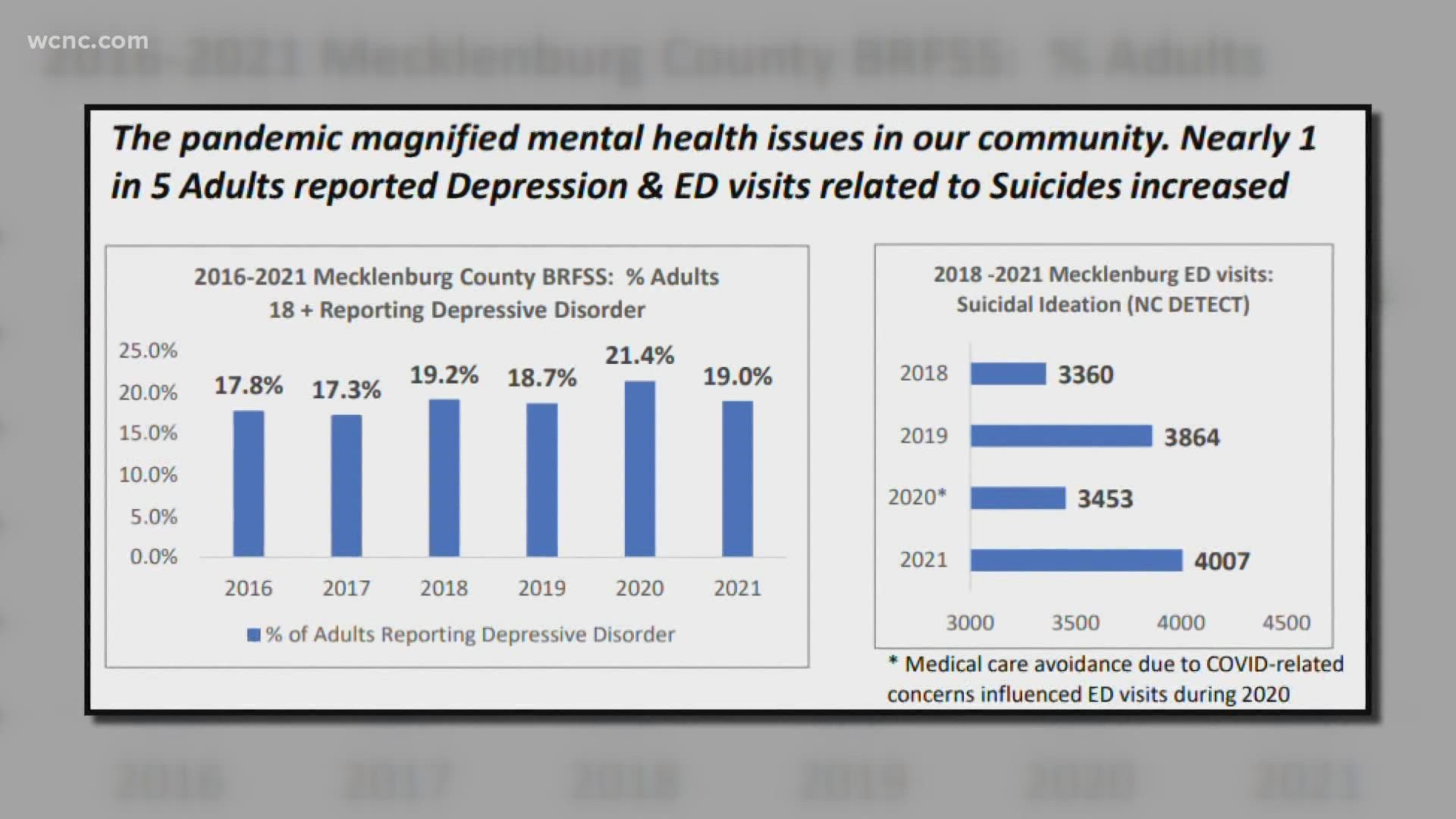CHARLOTTE, N.C. — Mental health experts report as COVID-19 cases decrease, they’re seeing an increase in people seeking out mental health services. During the pandemic 4 in 10 adults across the United States reported symptoms of anxiety of depression. That’s even higher for adults ages 18 to 24; 56% reported mental health struggles.
“We’ve all shared this feeling of isolation, fear of infection, and all of these things that go along with a global pandemic. So, we’re seeing an increase in the number of people seeking treatment,” Dr. Karen Lommel with Prisma Health said.
Experts are preparing for this mental health crisis to continue. They say the pandemic has been traumatic for many people and even as restrictions start to peel back, many will be left struggling with long-term mental impacts.
During his health report for 2021 on Tuesday, Mecklenburg County Health Department director Dr. Raynard Washington said in the county, nearly 1 in 5 adults reported depression. He said emergency department visits for suicides also increased.
Soltana Nosrati, a psychotherapist with Novant Health, said many people struggle when they feel out of control.
“The more you feel you can take ownership of what is going on in your life, what you’re going to do, and what you’re not going to do, the less likely you’ll suffer from mental health disorders,” Nosrati said.
The impacts of this type of stress can’t be undone overnight and providers are expecting a continued need for their services.
Nosrati says as the country moves into an endemic phase, balancing the possible risks with mental health benefits will be key to living a fuller life.
“Don’t stop living. Find your balance. Your balance. Not what your next-door neighbor thinks your balance should be, or your husband but what your balance is and go live your life,” she said. “Take that class, go to the movies, mitigate the risk. If you don’t feel comfortable going to the movies, pretend your house is a theater and do it there. Find whatever brings you joy and go do that. Regardless of whether it's due to COVID, cancer, natural disasters, life doesn’t last forever. So make the most of it.”
Several mental health experts believe the silver lining to this time is that mental health is being talked about more, slowly chipping away at the stigma that comes with it.
Contact Chloe Leshner at cleshner@wcnc.com and follow her on Facebook, Twitter and Instagram.

